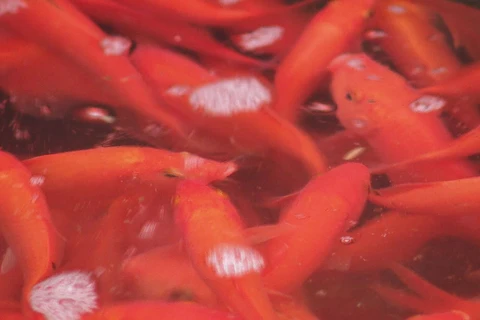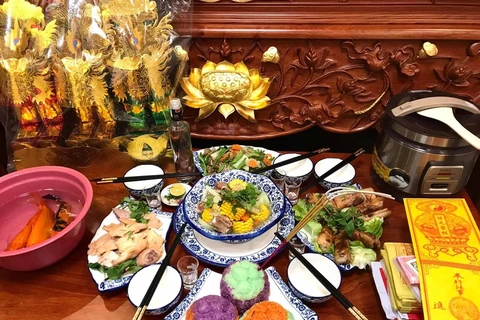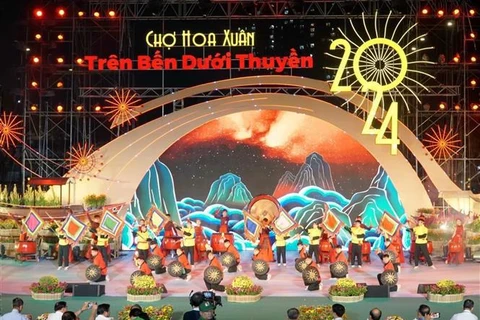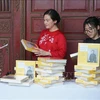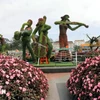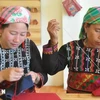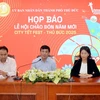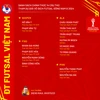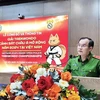 Tet markets are imbued with typical traditional cultural values of countryside areas. (Photo: hanoimoi.vn)
Tet markets are imbued with typical traditional cultural values of countryside areas. (Photo: hanoimoi.vn) Hanoi (VNA) – Markets form a unique feature of every rural area whenever the Lunar New Year (Tet) approaches as they carry traditional cultural values and are deeply imbued with the soul of the Vietnamese countryside.
The thrilling atmosphere of a new spring could be felt the most clearly at countryside markets ahead of Tet which are imbued with typical traditional cultural values of their localities and regions.
Therefore, people come to these markets not necessarily for shopping but for enjoying the warm atmosphere of Tet in their hometowns.
Unlike normal market days, as shopping demand often surges ahead of the biggest traditional festival, Tet market days in the countryside often last from the 23rd day to the morning of the 30th day of the last lunar month in a year.
On these days, women clean the family altar, decorate homes, buy food, and prepare five-fruit trays – all typical preparations for Tet. Meanwhile, small children are excited at following their parents to markets to buy new clothes, fruits, and confectionery.
Tet markets in the countryside are vast spaces filled with a wide range of goods. Farm produce grown by locals or hailing from other places are brought there, including glutinous rice and “dong” leaves for making “chung” cakes – a signature dish of Tet, pickled shallots to bananas and areca nuts. These are both fresh and much cheaper than in urban areas, thus adding to the diversity of things for sale.
Stalls at these markets are simple, with sellers sitting on low stools or right on the ground and showing products on a tarpaulin or in baskets in front of them.
Not only serving as places for trading goods, Tet markets are also where people come to share their stories in a year, both happy and sad ones, with one another, thus becoming an invisible bond that draws people closer together and strengthens neighbourliness./.



